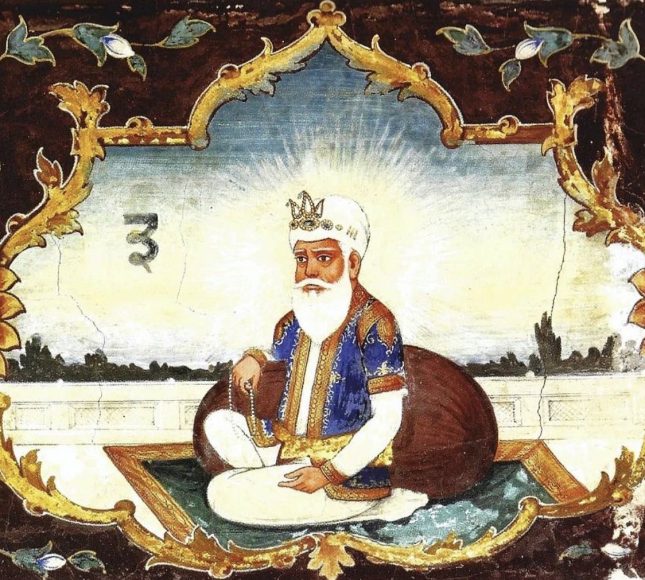SANSRAM, son of Baba Mohan and a grandson of Guru Amar Das. According to Sarup Das Bhalla, Mahima Prakash, he lost his mother in infancy. His father being indifferent to worldly affairs, Guru Amar Das took him under his care. Sarisram grew up to be a gifted young man. He mostly remained in attendance upon Guru Amar Das or spent his time memorizing hymns coming down from the Gurus.
These lie wrote down in Gurmukhi characters. Two of the pothis or volumes he prepared are to this day preserved in the descendant families. It is said that Guru Arjan made use of Sansram\’s pothis when compiling the Sikh canon in the form of the Adi Granth.
References :
1. Blialla, Sarup Das, Mahima Prakash. Patiala, 1971
2. Sanlokh Singh, Bhai, Sri Gur Pratap Suraj Granth. Amritsar, 1927-35
Sansram emerges as a pivotal figure in the early Sikh tradition—not merely for his lineage as the son of Baba Mohan and grandson of Guru Amar Das, but for the vital role he played in preserving the sacred hymns that would later form the backbone of the Adi Granth. From a young age, Sansram was immersed in the teachings of the Gurus. Having lost his mother in infancy and with a father less engaged in worldly affairs, he was lovingly taken under the care of Guru Amar Das. This close association allowed him to absorb the spiritual teachings deeply, and he dedicated himself to the meticulous memorization and transcription of the hymns recited by the Gurus .
Sansram’s dedication found tangible expression in the pothis—or volumes—that he prepared in Gurmukhi script. These handwritten compilations served as repositories for the divine Gurbani and were crafted with remarkable care. Two of these pothis have been preserved through the generations within descendant families, underscoring the enduring significance of his efforts. When Guru Arjan set out to compile the sacred canon in the form of the Adi Granth, he found in Sansram’s pothis the reliable blueprint needed to ensure the authenticity and uniformity of the hymns. By integrating Sansram’s meticulously prepared volumes, Guru Arjan reinforced the link between oral tradition and its written preservation, which was crucial for establishing the Sikh scripture as the immutable source of spiritual guidance .
Sansram’s legacy, therefore, is not just about being a diligent recorder of hymns; it is about embodying the spirit of devotion and the scholarly rigor that drove the early Sikh community to maintain the purity of their teachings. His work ensured that the songs of the Gurus were not left to the vagaries of memory alone but were eternally enshrined in the Adi Granth—a symbol of unity and spiritual continuity for Sikhs worldwide.



